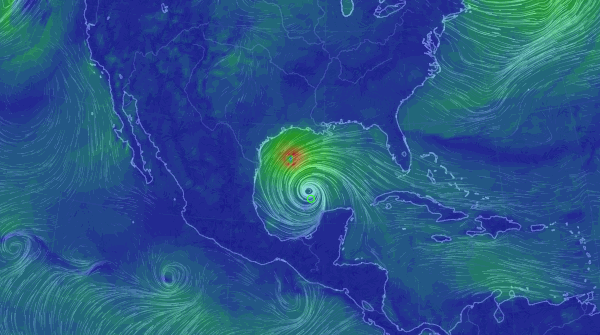After inexplicable fluctuations, the oil price has reached where it should be – at last. Some analysts, unfortunately, tend to attribute it to the onset of Hurricane Delta, a category-3 storm.
The reliably-modelled data shows that the storm
appears to die out as it reaches the mainland. In this context, plant closures
that could potentially affect the supply chain are a bit hyped up.
There are many other vital factors at play that
often overlooked, though: the US crude oil inventories are on decline for weeks
and they remain consistent; there is evidence that the supply will not be
interrupted, even in the region that is not usually the case; productions are
picking up and so are the vehicular movements.
Of course,
the crisis in the airline industry is far from over; the optimism that that
there will be some form of breakthrough in dealing with the pandemic is growing
as so many brilliant minds are tirelessly working on it, some of them even not
expecting nothing in return as a way of doing something for humanity.
On a positive note, it can be safely assumed that the
oil price will recover gradually and the day it crashed below $0 may not be
repeated once more, even if the epidemic will raise its ugly head, once or
twice more.
If you look at the Far-East, that is how people
adapt themselves to live with deadly diseases as the time goes by. Dengue fever
is a case in point; it’s much deadlier than coronavirus and a bite from a mosquito
carrying the virus, more often than not, guarantees a bout of fever, something
if ignored, could almost cause death.
The danger has been lurking in the region for years
now; yet the life goes on, despite the lack of success of a vaccine and
anti-viral drug for treatment. The rest, ample amount of water intake and common
sense often lead to the perfect healing.
All in all, the oil price will recover and will stay
at current level for months to come. If it reaches a bit beyond break-even
point, the investors can breathe a long sigh of relief – in the current
circumstances.
After inexplicable fluctuations, the oil price has
reached where it should be – at last. Some analysts, unfortunately, tend to
attribute it to the onset of Hurricane Delta, a category-3 storm.
The reliably-modelled data shows that the storm
appears to die out as it reaches the mainland. In this context, plant closures
that could potentially affect the supply chain are a bit hyped up.
There are many other vital factors at play that
often overlooked, though: the US crude oil inventories are on decline for weeks
and they remain consistent; there is evidence that the supply will not be
interrupted, even in the region that is not usually the case; productions are
picking up and so are the vehicular movements.
Of course,
the crisis in the airline industry is far from over; the optimism that that
there will be some form of breakthrough in dealing with the pandemic is growing
as so many brilliant minds are tirelessly working on it, some of them even not
expecting nothing in return as a way of doing something for humanity.
On a positive note, it can be safely assumed that the
oil price will recover gradually and the day it crashed below $0 may not be
repeated once more, even if the epidemic will raise its ugly head, once or
twice more.
If you look at the Far-East, that is how people
adapt themselves to live with deadly diseases as the time goes by. Dengue fever
is a case in point; it’s much deadlier than coronavirus and a bite from a mosquito
carrying the virus, more often than not, guarantees a bout of fever, something
if ignored, could almost cause death.
The danger has been lurking in the region for years
now; yet the life goes on, despite the lack of success of a vaccine and
anti-viral drug for treatment. The rest, ample amount of water intake and common
sense often lead to the perfect healing.
All in all, the oil price will recover and will stay
at current level for months to come. If it reaches a bit beyond break-even
point, the investors can breathe a long sigh of relief – in the current
circumstances.
Charts that matter are here:








